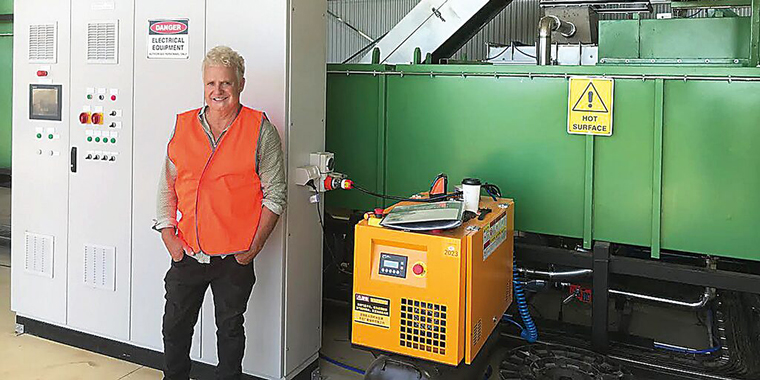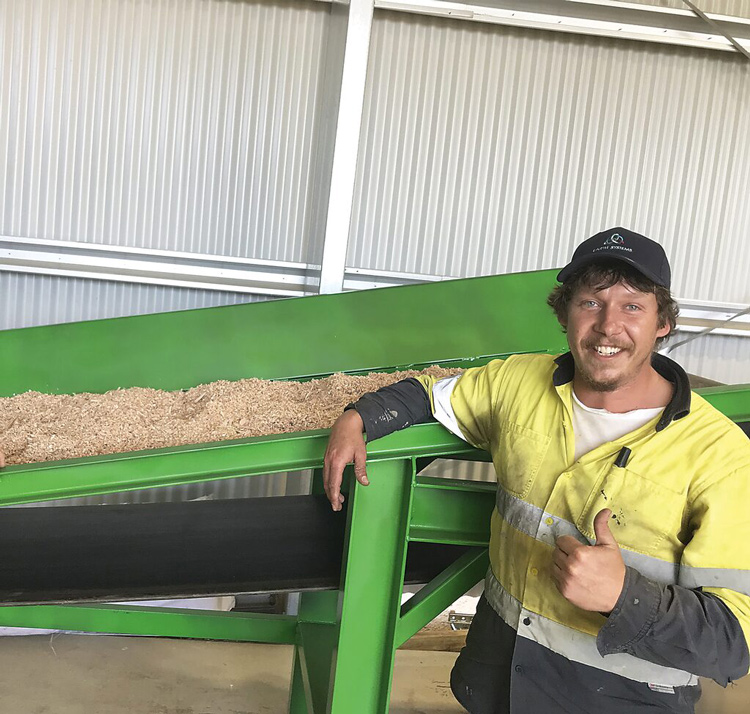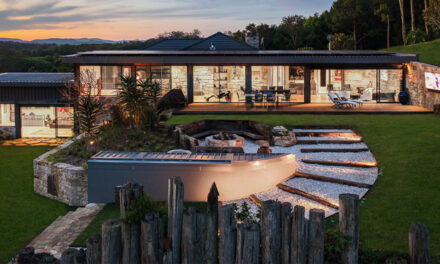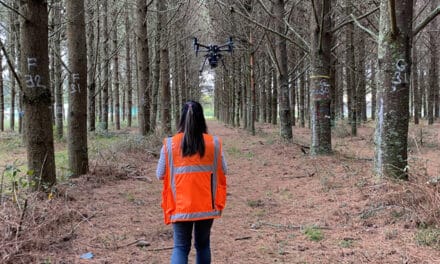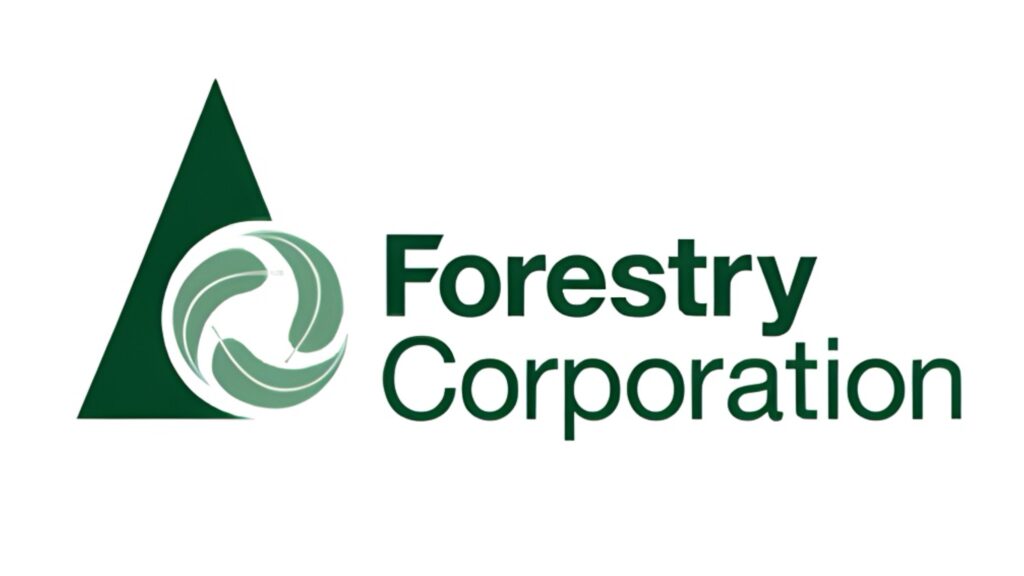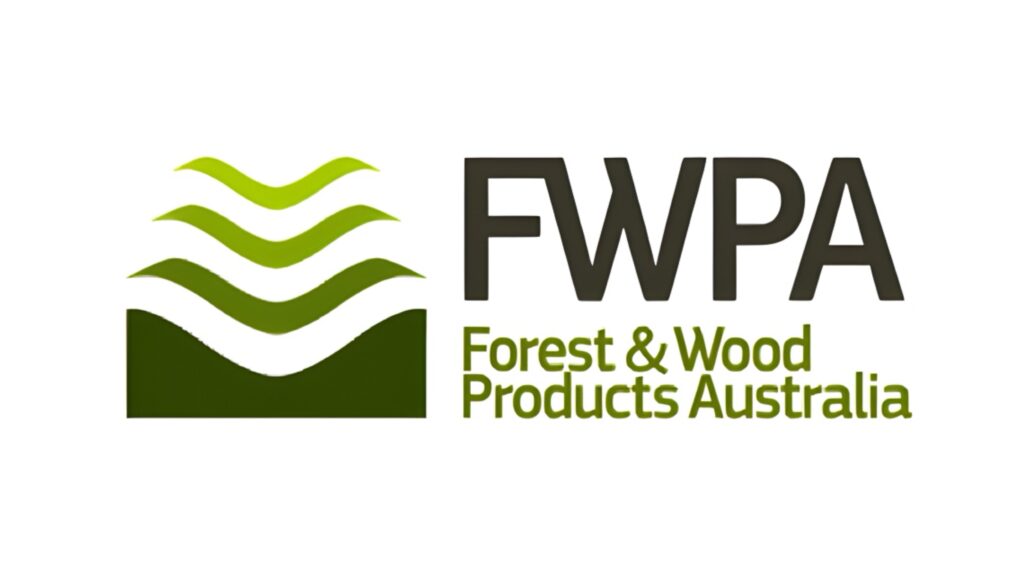RADICAL SOLUTIONS AT RADIAL TIMBER
Ricky Dent from Earth Systems jumped at the chance to install biochar technology so near to home.
Radial Timber in Yarram, Victoria, has made a name for itself as a highly sustainable business.
It’s planted over a million hardwood plantation trees as part of a 20-year plan to establish a 2000-hectare reserve. It designs for durability and with a focus on the circular economy, aiming to reuse elements of buildings when they are no longer needed, and, as the business name suggests, uses radial sawing to maximise recovery from smaller logs.
So, when an opportunity arose to make use of its wood waste product as a power source, it’s no surprise the company jumped at the chance. It teamed up with Earth Systems, a Port Melbourne-based company, and South Gippsland bioenergy company Spiegel Energy to build a $1 million pilot continuous pyrolysis biochar plant.
Pyrolysis technology sees organic material, in this case wood residues, burnt at high temperatures without oxygen to produce biochar, a stable solid that is rich in carbon and can fertilise and endure in soil for thousands of years.
“The plant can also produce heat and energy, and wood vinegar – a liquid potentially usable in agriculture and cooking,” Radial’s managing director Chris McEvoy told The Gippsland Times.
The heat will play a crucial role in running the timber mill and in future is a potential heating and power source for the local community.
“We have a pure resource. Most of the biochar plants around the world are working with [mixed] waste,” McEvoy said.
“Our timber is all dense Class One or Two timbers, all exactly the same shape. First, it should go through well and, secondly, should be a really high-value, consistent product. The beauty of the continuous char maker is you can put through much larger volumes. Take the biochar and put it into degraded soils to improve it – I love this circular economy story.”
Ricky Dent, an environmental technology specialist with Earth Systems, has done engineering work on plants like this around the world, but this one is very close to home.
“I’m originally from Yanakie, went to Fish Creek Primary School and Foster High School, then to the city to study environmental science at Monash University,” Dent said.
“I’ve been designing these machines for the last seven years. I travel around world, installing, commissioning, constantly improving the technology. I’m now back in South Gippy, at Yarram; I used to play footy at the oval across the road.”
The biochar plant operates as effectively a closed loop with very few emissions. Gas generated by the pyrolysis process travels in the opposite direction to the feedstock entering the furnace and heats up the incoming feedstock.
While the biochar process runs most easily at around 500°C, delivering heat that will also be used in Radial’s new peeling plant, it’s also possible to run it at temperatures as high as 1300°C and produce electricity that can be stored in batteries. In the future, a scaled-up version could even power the area, delivering backup to solar.
The process is self-extinguishing on failure and the CFA has worked closely with the team, granting a permit that allows the plant to run even on total fire ban days, though they have chosen not to make use of this. To read the full story, click here.
MAIN PIC: Radial Timber’s managing director Chris McEvoy at the pyrolysis machine.

